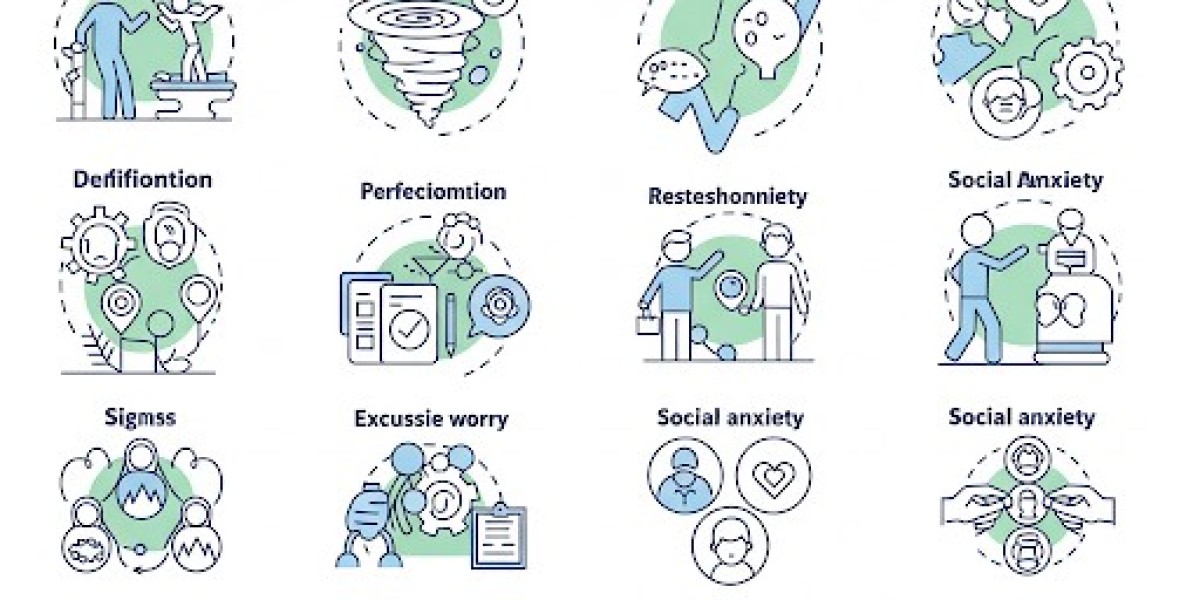In today's fast-paced world, many adults manage to meet deadlines, juggle social lives, and appear “put together” on the outside—while secretly battling a storm within. This silent struggle is often referred to as high functioning anxiety.
But what exactly does this term mean? And how can you recognize it in yourself or someone else?
Let’s explore the definition of high functioning anxiety, what it looks like, and how you can begin to manage it with compassion and clarity.
High Functioning Anxiety: Definition
High functioning anxiety is not an official clinical diagnosis but rather a popular term used to describe individuals who live with anxiety while still appearing outwardly successful or composed. Unlike traditional anxiety disorders that may visibly disrupt daily life, high functioning anxiety is more covert.
In simple terms:
It’s anxiety that hides behind achievement, perfectionism, and control.
People with high functioning anxiety often excel in their careers or academics, maintain relationships, and take on responsibilities with determination—yet inside, they may feel constantly tense, overwhelmed, or fearful of failure.
Common Signs of High Functioning Anxiety
Though everyone experiences anxiety differently, here are some typical signs often associated with high functioning anxiety:
Outward traits:
High achiever and goal-oriented
Organized and detail-focused
Frequently praised for performance or productivity
Punctual and reliable
Internal struggles:
Overthinking and constant worry
Fear of letting others down
Difficulty relaxing, even during downtime
Imposter syndrome or fear of failure
Need for control or perfectionism
Sleep disturbances due to racing thoughts
People with high functioning anxiety often say things like, “I’m just a worrier,” or “I can’t relax unless everything is perfect.” The anxiety becomes part of their identity and coping style—but it can take a toll over time.
Why It’s Often Missed or Misunderstood
Because high functioning anxiety doesn’t always look like “classic” anxiety—panic attacks, avoidance, or visible distress—it often goes unrecognized by others, and sometimes even by the person experiencing it.
Many people don't seek help because:
They believe their anxiety is helping them succeed
They're afraid that slowing down will cause failure
They’re praised for being driven, not questioned about how they feel
But managing anxiety through overworking or people-pleasing isn't sustainable and can eventually lead to burnout, depression, or physical symptoms.
Is High Functioning Anxiety a Disorder?
While “high functioning anxiety” is not a clinical term, it often overlaps with diagnosable anxiety disorders such as:
Generalized Anxiety Disorder (GAD)
Obsessive-Compulsive Disorder (OCD)
Social Anxiety Disorder
The distinction lies mostly in how the anxiety is expressed and perceived. If your anxiety is persistent, hard to control, and affects your quality of life—even if you’re still functioning well externally—it’s worth talking to a mental health professional.
Managing High Functioning Anxiety
The good news is: You don’t have to live in overdrive forever. There are effective tools and treatments that can help reduce anxiety while still allowing you to succeed in life.
Helpful strategies include:
Therapy
Mindfulness-based therapy: Helps anchor you in the present and reduce overthinking
Talk therapy: Offers a safe space to explore the roots of your anxiety
Lifestyle adjustments
Prioritize rest, not just productivity
Set healthy boundaries with time and energy
Engage in regular exercise or yoga
Practice daily grounding techniques
Medication
For some, anti-anxiety or antidepressant medications can provide essential support. Always consult a licensed professional to explore this option.
When to Seek Help
If your inner anxiety is starting to impact your sleep, relationships, or overall well-being—even if others don’t see it—it’s a valid reason to seek support.
Conclusion: You Can Be High Achieving and Still Need Help
High functioning anxiety doesn’t mean you’re broken—it means you’ve learned to cope in ways that may no longer serve your emotional health. Recognizing it is the first step toward healing.
You’re allowed to be ambitious and take care of your mental health.
Need Help Navigating High Functioning Anxiety?
Visit Mental Health Connect for trusted resources, tools, and professional support designed for adults just like you. Let us help you take the next step toward a calmer, more grounded life.


